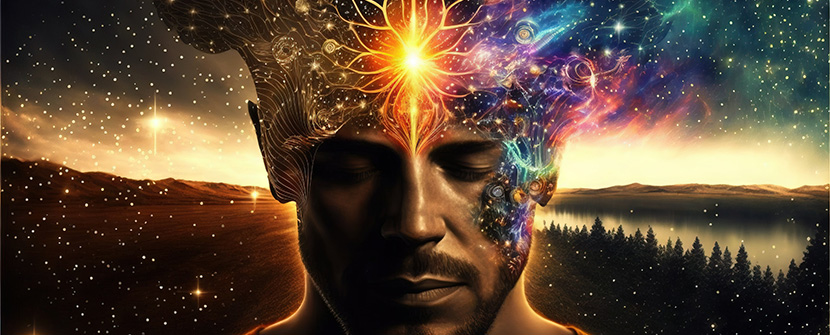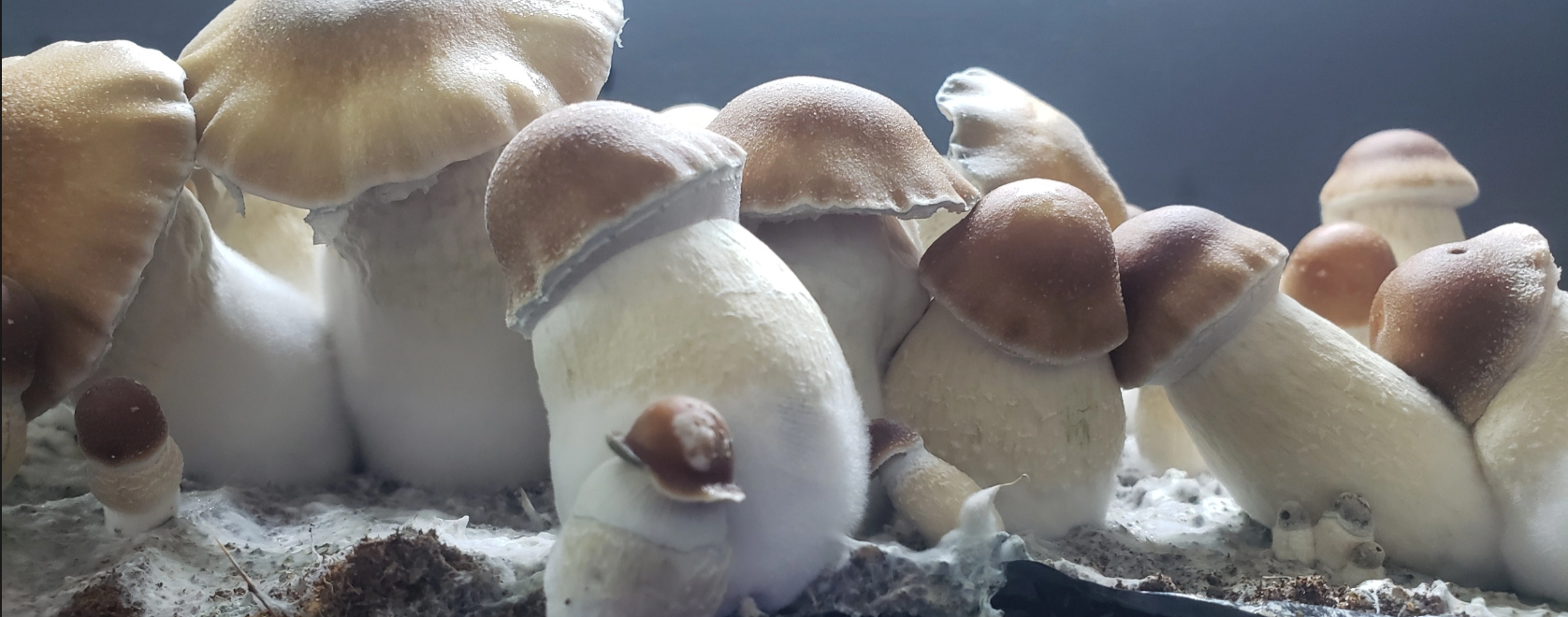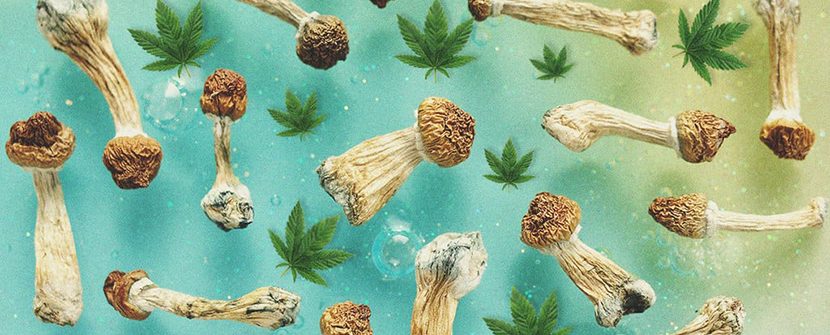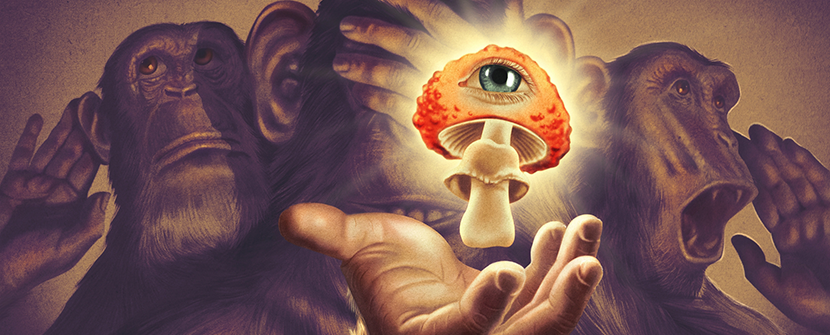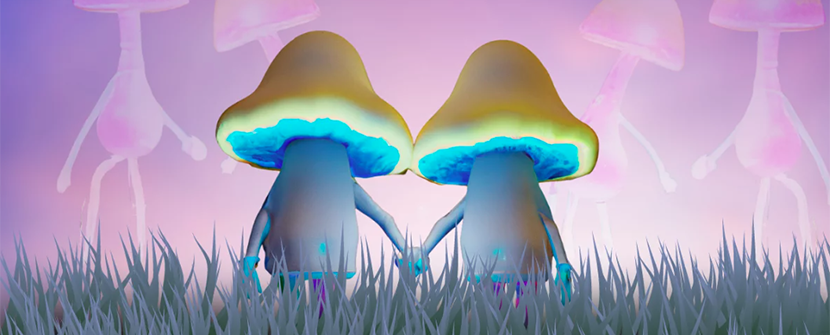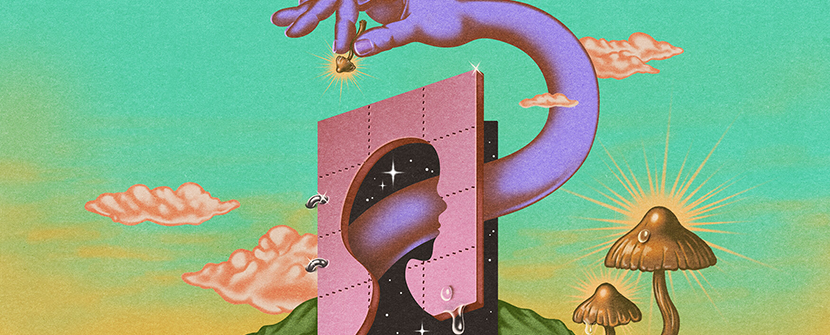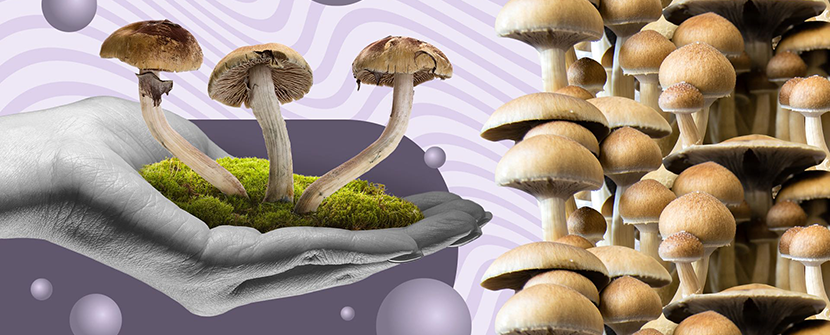Psilocybin is a natural compound found in some species of mushrooms, commonly known as magic mushrooms. Psilocybin has been used for centuries by various cultures for spiritual and healing purposes. In recent years, scientific research has shown that psilocybin can have profound effects on the human mind and brain, especially when combined with psychotherapy.
One of the most promising applications of psilocybin is for the treatment of existential distress in people with life-threatening illnesses, such as cancer or major depressive disorder. Existential distress is a term that describes the feelings of hopelessness, meaninglessness, isolation, and fear of death that can arise when facing a serious or terminal diagnosis. Existential distress can impair the quality of life, well-being, and coping abilities of patients and their families.
Several studies have found that a single dose of psilocybin, given in a safe and supportive setting, can produce lasting reductions in existential distress and related symptoms, such as anxiety and depression. Psilocybin may also enhance the sense of meaning, purpose, spirituality, and connection in patients, as well as improve their attitudes toward death.
How does psilocybin work?
Psilocybin is converted in the body to psilocin, which acts on serotonin receptors in the brain. Serotonin is a neurotransmitter that regulates mood, cognition, perception, and other functions. Psilocin mimics the effects of serotonin and stimulates certain receptors that are involved in the modulation of consciousness.
By activating these receptors, psilocin can induce a state of altered perception and cognition, known as a psychedelic experience. This experience can vary depending on the dose, the setting, the expectations, and the personality of the individual.
However, some common features include:
- Changes in sensory perception, such as enhanced colors, sounds, tastes, smells, and bodily sensations
- Changes in emotional perception, such as increased empathy, openness, joy, awe, or gratitude
- Changes in cognitive perception, such as altered sense of time, space, self, reality, or causality
-
- Changes in spiritual perception, such as transcendent experiences, mystical insights, or encounters with sacred or divine entities
These changes can have profound implications for how people view themselves, their lives, their relationships, and their mortality. Psilocybin may help people access and process emotions and memories that are normally suppressed or avoided. Psilocybin may also help people reframe their beliefs and values and discover new perspectives and meanings.
What does the research say?
Several clinical trials have investigated the effects of psilocybin on existential distress and related outcomes in patients with cancer or major depressive disorder. These trials have used rigorous methods to ensure the safety and validity of the results.
For example:
- The participants were carefully screened for any medical or psychiatric contraindications
- The dose of psilocybin was tailored to each individual’s body weight and sensitivity
- The sessions were conducted in comfortable rooms with music and trained therapists
- The participants received extensive preparation and follow-up to integrate their experiences
-
- The outcomes were measured using standardized instruments and interviews
The results of these trials have been consistently positive and impressive.
For instance:
- A study by Johns Hopkins researchers found that psilocybin decreased clinician- and patient-rated depressed mood, anxiety and death anxiety in 51 cancer patients. These effects persisted for up to six months after a single dose of psilocybin. The participants also reported increases in quality of life, life meaning and optimism. Psilocybin produces substantial and sustained decreases in depression ...">A long-term follow-up study found that these benefits lasted for up to 4.5 years for some patients. The participants attributed positive life changes to the psilocybin-assisted therapy experience and rated it among the most meaningful and spiritually significant events of their lives.
- A study by NYU researchers found that psilocybin produced rapid and sustained reductions in anxiety, depression and existential distress in 29 cancer patients. These effects lasted for at least seven weeks after a single dose of psilocybin. The participants also reported increases in spiritual well-being, quality of life and acceptance of death. A long-term follow-up study found that these benefits persisted for up to 4.5 years for some patients. The participants rated the psilocybin-assisted therapy experience as one of the most personally meaningful and spiritually significant events they had ever experienced.
- A study by Imperial College London researchers found that psilocybin produced rapid and sustained improvements in depressive symptoms in 19 patients with treatment-resistant major depressive disorder. These effects lasted for up to five weeks after two doses of psilocybin. The participants also reported increases in positive mood, optimism, and self-efficacy. A follow-up study found that these benefits were maintained for up to one year for some patients. The participants described the psilocybin-assisted therapy experience as a catalyst for positive change in their lives.
These studies suggest that psilocybin has the potential to be a safe and effective treatment for existential distress and related conditions in patients with life-threatening illnesses. Psilocybin may offer a novel and powerful way of addressing the psychological and spiritual needs of these patients, who often suffer from inadequate or ineffective care.
What are the challenges and limitations?
Despite the promising results, psilocybin research faces several challenges and limitations that need to be addressed before it can be widely available and accepted as a treatment option.
Some of these include:
- The legal status of psilocybin. Psilocybin is classified as a Schedule I drug in most countries, meaning that it has no accepted medical use and a high potential for abuse. This makes it difficult to obtain, possess, and administer psilocybin for research or clinical purposes. It also creates stigma and misinformation around psilocybin and its effects.
- The ethical issues of psilocybin. Psilocybin can induce profound changes in consciousness and worldview, which may have lasting implications for the autonomy, identity, and values of the individual. It may also raise questions about the role and responsibility of the therapist, the consent and expectations of the patient, and the impact on the society and culture at large.
- The practical issues of psilocybin. Psilocybin requires a specialized and intensive protocol that involves careful screening, preparation, monitoring, and integration. It also requires a high level of trust and rapport between the patient and the therapist. These factors may limit the accessibility, scalability, and affordability of psilocybin-assisted therapy.
-
- The scientific issues of psilocybin. Psilocybin is a complex and variable phenomenon that depends on many factors, such as the dose, the setting, the personality, and the mindset of the individual. It is also influenced by subjective and qualitative aspects that are hard to measure and quantify. These factors may pose challenges for designing, conducting, and interpreting psilocybin research.
What are the future directions?
Psilocybin research is an exciting and emerging field that has much to offer for the understanding and treatment of existential distress and related conditions in patients with life-threatening illnesses. However, more research is needed to confirm the safety and efficacy of psilocybin-assisted therapy, to explore its mechanisms of action and optimal conditions of use, to compare it with other treatments and modalities, to identify its potential risks and adverse effects, and to address its legal, ethical, practical, and scientific challenges.
Some of the future directions for psilocybin research include:
- Conducting larger and longer-term trials with more diverse populations and settings
- Developing standardized and validated measures and methods for assessing psilocybin outcomes
- Investigating the neural correlates and biomarkers of psilocybin effects using neuroimaging and other techniques
- Exploring the role of psychological factors, such as personality traits, cognitive styles, and coping strategies, in moderating or mediating psilocybin effects
- Examining the influence of cultural factors, such as beliefs, values, and traditions, on shaping or interpreting psilocybin experiences
- Evaluating the cost-effectiveness and cost-benefit analysis of psilocybin-assisted therapy compared to other treatments
-
- Educating and training health professionals, policy makers, and the public about psilocybin and its potential benefits and risks
Closing Thoughts
Psilocybin is a natural compound that can induce a psychedelic experience that may help people with life-threatening illnesses cope with existential distress and related symptoms. Psilocybin-assisted therapy has shown promising results in reducing anxiety, depression, and death anxiety, and enhancing meaning, spirituality, and quality of life in these patients.
Psilocybin may offer a new paradigm for treating some psychiatric conditions that are currently difficult or impossible to treat. However, psilocybin research faces many challenges and limitations that need to be overcome before it can be widely accepted and available as a treatment option. Psilocybin research is an exciting and emerging field that has much to offer for the understanding and improvement of human well-being.


